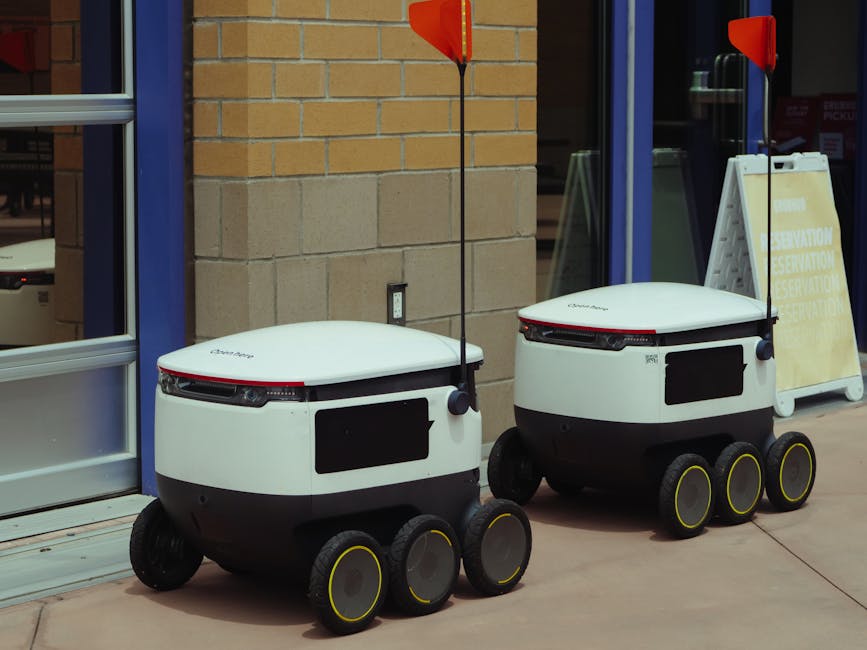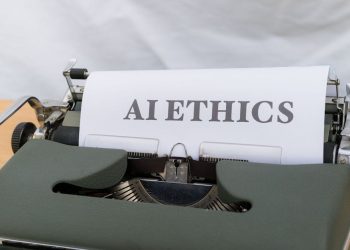No products in the cart.
Navigating the Future: Careers in Autonomous Vehicle Policy
As AI reshapes transport policy, new careers emerge. Explore the evolving landscape of autonomous vehicle regulation and the skills needed for success.
The dawn of autonomous vehicles isn’t just a technological revolution; it’s a seismic shift in how we think about transport policy and the careers that will emerge from it. Imagine a world where cars drive themselves, reducing accidents, traffic jams, and emissions. As exhilarating as this future sounds, it also raises critical questions about governance, safety, and the very fabric of our workforce.
In this brave new world, the role of AI in transport policy becomes paramount. Policymakers are now tasked with navigating uncharted waters, where existing regulations clash with rapid technological advancements. For young professionals, this intersection of AI, policy, and transportation offers a rich tapestry of career opportunities.

Currently, the transport sector faces challenges that are both daunting and exciting. With the rise of autonomous vehicles, regulatory bodies are scrambling to develop frameworks that ensure public safety while fostering innovation. For instance, the U.S. Department of Transportation has been actively revising its guidelines to include autonomous technologies, a sign that the traditional regulatory landscape is evolving at breakneck speed.
In countries like Germany and Japan, governments are racing to create legal frameworks that address not just the vehicles themselves, but also the ethical implications of AI decision-making. This has led to the emergence of roles such as Transport Policy Analyst, AI Ethics Consultant, and Regulatory Affairs Specialist. Each position requires a blend of technical knowledge and policy expertise, underscoring the need for interdisciplinary education.
Each position requires a blend of technical knowledge and policy expertise, underscoring the need for interdisciplinary education.
One example of this evolution can be seen in the work of Sarah Kim, a recent graduate from the University of California, Berkeley. After completing her degree in Public Policy with a focus on transportation, she landed a job as a Policy Advisor for a tech startup developing autonomous delivery drones. “Every day is a new challenge,” she says. “I’m not just writing policies; I’m helping shape the future of logistics.”
Yet, while opportunities abound, they come with their own set of challenges. The rapid pace of technological change often outstrips the ability of educational institutions to adapt their curriculums. Many recent graduates find themselves in a race against time, needing to supplement their education with online courses or certifications in AI and machine learning.
Moreover, the landscape is not uniform across the globe. In emerging markets, the adoption of autonomous technologies may be slower, influenced by factors such as infrastructure readiness and public acceptance. For young professionals in these regions, the focus may shift toward roles that emphasize capacity building and community engagement. They might become leaders in advocating for policies that ensure technology serves the public good rather than exacerbates inequalities.
As we look toward the future, several key trends will shape the careers emerging from this technological frontier:
- Ethical AI Development: With great power comes great responsibility. As AI takes the wheel, professionals will need to navigate the ethical implications of machine decision-making. This will create demand for ethicists and compliance officers who specialize in AI.
- Data Privacy and Security: Autonomous vehicles will generate vast amounts of data. Protecting this data will be crucial, leading to a rise in cybersecurity roles focused on transport.
- Infrastructure Innovation: As cities evolve to accommodate autonomous vehicles, urban planners and civil engineers will find themselves at the forefront of designing smart cities.
- Public Engagement: Successfully integrating AI in transport will require buy-in from communities. Roles focused on public relations and community outreach will become increasingly vital.
- Global Compliance: With different countries moving at varying speeds, experts in international law and compliance will be needed to navigate the complexities of global transport policy.
In this dynamic landscape, adaptability will be the key to success. Young professionals must embrace lifelong learning, continually upgrading their skills to remain relevant. Online platforms like Coursera and Udacity offer courses that can bridge the gap between traditional education and the skills needed in this evolving field.
Young professionals must embrace lifelong learning, continually upgrading their skills to remain relevant.
As the world gears up for this transformation, it’s essential to remember that behind every technological advancement are the human stories that drive them. Sarah Kim’s journey is just one of many, but it encapsulates the spirit of resilience and innovation that will define the next generation of leaders in transport policy.
The intersection of AI and transport policy is ripe with possibility, beckoning a new generation of professionals to step into roles that will shape our urban landscapes for decades to come. The question remains: Are you ready to take the wheel?











